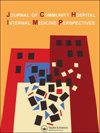社会经济地位对心力衰竭的影响
IF 0.9
Q3 MEDICINE, GENERAL & INTERNAL
Journal of Community Hospital Internal Medicine Perspectives
Pub Date : 2023-11-04
DOI:10.55729/2000-9666.1258
引用次数: 0
摘要
在过去的几十年里,心力衰竭已经成为美国一个重要的健康负担。本研究检验了社会经济因素如教育水平、社会地位、就业状况和贫困对心力衰竭风险有很强的混杂影响的假设。为了获取相关数据,我们从MEDLINE、Google Scholar和Web of Science检索了12篇已发表的研究。对已确定研究的横断面分析证实,这四个社会经济因素使个体易患心力衰竭相关并发症的风险升高。尽管它们相互依赖,但教育水平、就业状况、社会地位和贫困独立地混淆了个体之间的心血管风险。值得注意的是,来自受教育程度低的家庭的个人患这些疾病的风险更高。与此同时,与社会经济地位较低的家庭相比,没有就业家庭成员的家庭报告心力衰竭病例的可能性较小。此外,来自弱势家庭的人患心力衰竭并发症的风险更大。这项研究的结果发现,社会经济地位和心力衰竭风险之间存在很强的联系。本文章由计算机程序翻译,如有差异,请以英文原文为准。
Impact of Socioeconomic Status on Heart Failure
Heart failure has emerged as a substantial health burden in the United States in the last few decades. This study examined the hypothesis that socioeconomic factors such as education level, social position, employment status, and poverty have a strong confounding influence on the risk for heart failure. To access relevant data, 12 published studies were retrieved from MEDLINE, Google Scholar, and Web of Science. A cross-sectional analysis of the identified studies confirmed that the four socioeconomic factors predisposed individuals to an elevated risk of heart failure-related complications. Despite their interdependencies, educational level, employment status, social position, and poverty independently confounded cardiovascular risk among individuals. Notably, individuals from households with low education were at a higher risk of these diseases. At the same time, households without employed family members were less likely to report cases of heart failure than those with low socioeconomic status. Additionally, individuals from disadvantaged backgrounds faced a greater risk for heart failure complications. The findings from this study found a strong association between socioeconomic status and heart failure risks.
求助全文
通过发布文献求助,成功后即可免费获取论文全文。
去求助
来源期刊

Journal of Community Hospital Internal Medicine Perspectives
MEDICINE, GENERAL & INTERNAL-
自引率
0.00%
发文量
106
审稿时长
17 weeks
期刊介绍:
JCHIMP provides: up-to-date information in the field of Internal Medicine to community hospital medical professionals a platform for clinical faculty, residents, and medical students to publish research relevant to community hospital programs. Manuscripts that explore aspects of medicine at community hospitals welcome, including but not limited to: the best practices of community academic programs community hospital-based research opinion and insight from community hospital leadership and faculty the scholarly work of residents and medical students affiliated with community hospitals.
 求助内容:
求助内容: 应助结果提醒方式:
应助结果提醒方式:


